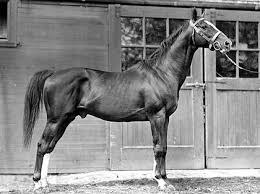Comments
-
2022 FCS Playoff Schedule & Scores
"In fairness to William & Mary it was 17F at kickoff"
I can see moving the Sac game to get ahead of the storm, and the North Dakota State game was indoors, but why move the Montana State game from Saturday afternoon to Friday night? 17 degrees at kick off and a visiting team from Virginia? Forecast for 1:00 today in Bozeman is a balmy 37 degrees. -
SI Suggests Troy Taylor for StanfordI won't miss him being at Sac. Always hoped he'd go to Cal, but the timing didn't work out.
Now how much of his staff goes with him (or what kind of budget does he have to get them to Silicon Valley?) Folsom High School did not lose a step when he left. Richardson or Fresques could probably keep the program going at a pretty high level.
The Sac athletic department has done a pretty good job with the last few head coaching hires...football, both basketball teams....
And players: I don't know how many of them could pass muster with the admissions people at Stanford, but for those who can't, two words: "transfer portal." -
2022 FCS Playoff Schedule & ScoresFootball gods shine on the Bison come playoff time as they now get another home game. Their defense will be tested and their offense will have a tough time playing “who has the ball last” against IW.
Home team is now 17-2 in these playoffs.. -
SI Suggests Troy Taylor for StanfordWho do you think Stanford is likely to hire if not Taylor?
-
2022 FCS Playoff Schedule & ScoresNDSU plays winner of Sac/UIW game. Sac is a very good team, but the Bison kick it into a higher gear in the playoffs.
-
SI Suggests Troy Taylor for Stanford
"No word on whether he will see the playoff run through or not if [Sac wins] tonight.”
The FCS playoff schedule makes it hard to stick around. Semi-finals on December 16th and 17th, but finals not until January 7th. The new school is probably not going to want to wait that long for the coach to make the move.
And even if players cannot follow a coach to a new school, they may consider the transfer portal to a different school. Hint, hint.... -
SI Suggests Troy Taylor for Stanford
The bigger school calls the shots. Look how many coaches have moved on when their current school still has a bowl game. If this is true, Stanford wants recruits to know who's going to be the coach. -
SI Suggests Troy Taylor for StanfordStanford's current QB, Tanner McKee, just declared for the NFL draft: https://www.si.com/college/stanford/football/stanford-quarterback-tanner-mckee-declares-for-2023-nfl-draft
However they have a commitment from a four star recruit at QB....who is apparently only a junior, but may graduate from high school and enter college a year early...which makes you wonder what Stanford's notoriously tight admissions office has to say. https://www.si.com/college/stanford/recruiting/stanford-lands-massive-commitment-from-four-star-quarterback-myles-jackson
A four star QB and Taylor could be interesting.... -
2022 FCS Playoff Schedule & ScoresSo a confederation of convenience comprised of nondescript FCS teams, plus a couple of teams which have not yet fully transitioned from D-II to FCS, and a school that doesn't even have a football program yet, have FBS and big money TV contract dreams.
God, I love this country! -
2022 FCS Playoff Schedule & ScoresSo far the higher seeded and home team has won 15 of the 16 FCS playoff games.
-
2022 FCS Playoff Schedule & ScoresAnd after two weeks the only teams standing are the top 8 seeds....
-
MBB: Pacific (2-5) at UC Davis (6-2) Thu. Dec.1, 6 pmBetween men’s and women’s basketball and men’s water polo I am picking up the tab for my next coffee with a friend who is a UOP alum.
And I was the one who suggested we make the next meeting a friendly wager based on this week’s contests. -
Doss to NY GiantsApparently the Chargers then re-signed Doss to the practice squad.
https://www.cbssports.com/fantasy/football/news/keelan-doss-returns-to-chargers-practice-squad/
https://www.chargers.com/team/players-roster/keelan-doss/ -
Men's water polo defeats No. 3 UOP.With less than three minutes left to play the Tigers are comfortably in the lead, 10-5.
-
MBB: Pacific (2-5) at UC Davis (6-2) Thu. Dec.1, 6 pmAt 3:00 PM on that same day the Tigers and Aggies will meet in an "opening round game" at the NCAA Men's Water Polo championships in Berkeley.
(Another website says the game starts at 6:00 PM) -
2023 Week 1: UC Davis @ Texas A&M CommerceI read the article to say they are in transition limbo. Not eligible for most post season play for a couple more seasons.
72Aggie

Start FollowingSend a Message
- Terms of Service
- Useful Hints and Tips
- Sign In
- Created with PlushForums
- © 2026 Aggie Sports Talk